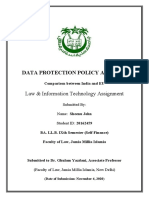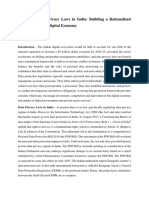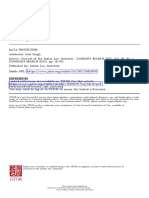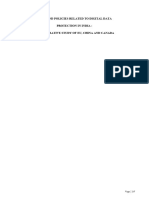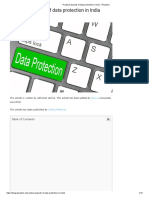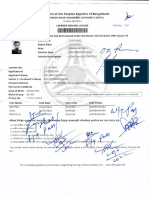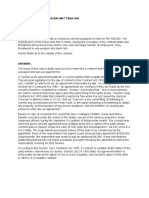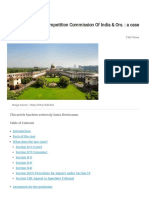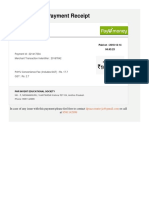0% found this document useful (0 votes)
37 views12 pagesData Protection Law Course Outline
The course on Data Protection Law at National Law University Odisha focuses on the Digital Personal Data Protection Act, 2023, and its implications within India's digital economy. It covers the historical evolution of privacy rights, key provisions of the DPDP, and comparative analyses with international frameworks like GDPR and CCPA. Students will learn about data rights, compliance procedures, and the impact of AI on data privacy, equipping them for advanced research and participation in data governance debates.
Uploaded by
ashuking66Copyright
© © All Rights Reserved
We take content rights seriously. If you suspect this is your content, claim it here.
Available Formats
Download as DOCX, PDF, TXT or read online on Scribd
0% found this document useful (0 votes)
37 views12 pagesData Protection Law Course Outline
The course on Data Protection Law at National Law University Odisha focuses on the Digital Personal Data Protection Act, 2023, and its implications within India's digital economy. It covers the historical evolution of privacy rights, key provisions of the DPDP, and comparative analyses with international frameworks like GDPR and CCPA. Students will learn about data rights, compliance procedures, and the impact of AI on data privacy, equipping them for advanced research and participation in data governance debates.
Uploaded by
ashuking66Copyright
© © All Rights Reserved
We take content rights seriously. If you suspect this is your content, claim it here.
Available Formats
Download as DOCX, PDF, TXT or read online on Scribd
/ 12

















